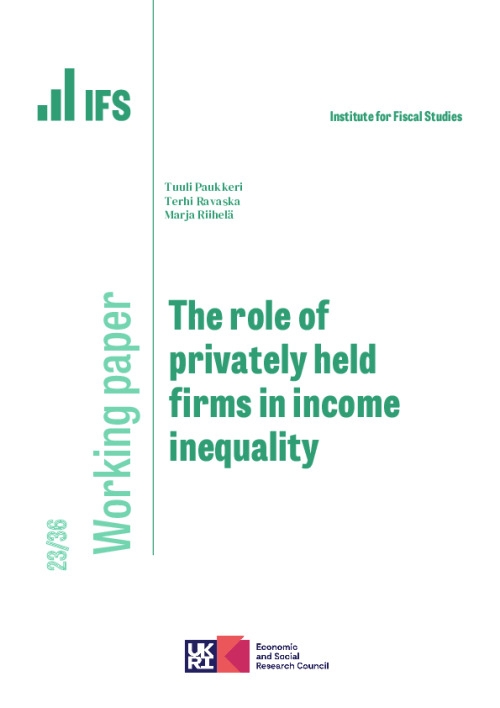Business owners of privately held firms have multiple opportunities to decide how much taxable income to take out from their firm and how much to retain within the firm. However, undistributed profits within firms, i.e. retained earnings, are typically invisible in income data, distorting our understanding of the extent of income inequality. A recent strand of research has illustrated the importance of accounting for retained earnings for measuring inequality. In this paper, we study the role of privately held firms in income inequality in Finland, including the role of retained earnings, but also taking a wider perspective on the role of firms. We study the role of close family members as firm owners across the income distribution, including the role of own underage children as owners. In the first part of the paper, we find that firms, firm formation and retained earnings are important for high income individuals. Particularly, we show that there is a divergence between the standard gross income measure and broad income including retained earnings immediately after starting a business. In the second part, we find that the prevalence of underage children as firm owners increases strongly among business owners in the top 0.1% and these children have substantial capital income from a very young age.








